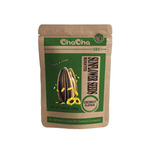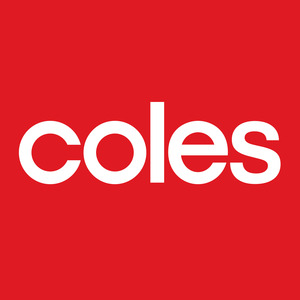Spiced Flavour
Chacha Sunflower seeds is a classic & popular snack in many parts of the world.
½ Price Chacha Chacheer Roasted Sunflower Seeds Coconut/Spiced Flavour 228g $2 @ Coles
Related Stores
closed Comments

Agreed. I even stay away from my local succulent chinese takeaway now.

Any China made food products go straight to bin in our household. It's really sad to see many kids lollies being manufactured in China now. I'm not sure if any government agency/regulatory authority is doing any food testing on these.

@dealhunter52: Can you throw away whatever device you're typing on, too? Its definitely leeching toxins into your fingers as you type. Or maybe it's too late and its already gone up to your head.

@dealhunter52: You better don't use any Chinese product .they are all made of posion in your mind and dirty as your mind. Suck a looser As your name.

@stone8552: Lol…Burnt. Are you an importer?
This 👇 was just a couple of months ago .
https://www.abc.net.au/news/2025-07-25/china-kindergarten-le…
Also, these 👇 among other food scandals.
https://www.abc.net.au/news/2024-07-13/cooking-oil-contamina…
https://www.channelnewsasia.com/asia/tsingtao-beer-china-uri…
https://en.wikipedia.org/wiki/2008_Chinese_milk_scandal
@ATangk: I will pick Australian produce over Chinese produce any day of the week, even if I have to pay double. I don't compromise with my food quality and health, neither should you.
Wisemen rightly said, 'Health is wealth'.

@dealhunter52: What about so healthy sounding names as Paraquat, Atrazine, Fipronil…? They are banned in China, US, and Europe for health and environment concerns. But Australian farmers enjoy the luxury of killing insects, and, potentially, customers.

@Ozzster: Interestingly, lead paint in pre-school food, melamine in baby formula and oil being transported in tankers with toxic chemicals has nothing to do with farming or agriculture. If the corners being cut for baby food, I wouldn't want to know what corners are being cut or regulations being flogged when it comes to farming. China state owned company ChinaChem is after all biggest producer/exporter of Paraquat, Atrazine, Fipronil etc.

@dealhunter52: Baby and school food are rare particular cases, you must be really unlucky to to end up in a billion populated country in that particular hundred of people affected by it. While toxic chemicals are used in Australian farming always and everywhere, and you would really need to look for proper imported organic food to avoid that.
And Australia is the biggest producer and exporter or coal, so what? Everyone is happy to produce and sell poison for someone else. But no one makes decision to eat that poison instead of using in paint, other than your own government and each consumer.
@Ozzster: Rare cases?
Cooking oil has been transported in tankers with toxic industrial waste since at least 2005, with repeated reports of similar practices in the years following, including in 2015 and most recent controversy in July 2024. This issue is not new and continues despite past media attention and govt assurances.
You and your family can eat whatever you want and I can't stop you, but I will warn others.

@dealhunter52: When you bring two occasions of the kid's food yes, these are 2 particular cases. And you cannot bring the case with oil because it is as relevant as cooking and transporting relevant to each other. Oil thing is more common, but it is a well-known, there are known countermeasures, and you have really low chances to get poisoned by that oil after all. You are not warning anyone by repeating well-known things.
But you are hypocritical if you don't do the same against issues with australian-made food, which are ignored by Australian authorities. And suddenly, so beloved by Australian farmers Paraquat, is proven to cause Parkinson's disease, which has been actively growing in the last years in Australia (what a coincidence?) and expected to grow by 79% in the next 10 years. And this is not rare, those hundreds per billion in China are not as big as hundreds of thousands out of millions in Australia. Don't be hypocrite, this is here, now, and it is much worse than something once in a billion somewhere.

@Ozzster: Let's fact check you.
In 2021, China had an age-standardised prevalence (ASPR) of 245.7 per 100,000 people, which was the highest among the G20 countries and way higher than in Australia. I wonder why?
As mentioned earlier, China state owned company ChinaChem is the biggest producer/exporter of Paraquat, Atrazine, Fipronil etc. If you think Chinese farmers abide by government regulations, I have bridge to nowhere to sell to you. You can parrot CCP propaganda as much as you like but you can't ignore facts.

@dealhunter52: Why do you care about China while your own farmers feed you with toxic food that you are happy with?

@Ozzster: Because their toxic food products are filling our supermarkets. What wrong with you? Change your name to CCP puppet or something, you're no Ozzster.

@dealhunter52: So what about locally-produced food, isn't it in the supermarkets as well? Or getting Parkinson's is not OKay only if you got it from non-australian food?

@Ozzster: If you want change, petition your local government rather than promoting toxic goods from other countries with dubious distinction of enforcing food standards.

@dealhunter52: I am not asking what I should do, I am asking why do you ignore things obviously much more relevant to everyone here.

@Ozzster: Well…again, how does promoting toxic goods from other countries with dubious distinction of enforcing food standards help change Australian regulations.
I'm not ignoring anything, I would work rather work to improve regulations here and bring about change to make my country better.

@dealhunter52: As long as local food is potentially even more toxic the imported food is the only way to get safe food. Promotions are about marketing, safety should come first anyway. In this particular case I am not so confident that local veggies are safer than these seeds from China. Rather opposite, IMHO.

@Ozzster: Again….fact is per capita more Chinese suffer from Parkinson's disease than Australians.
https://ourworldindata.org/grapher/parkinsons-disease-preval…
Do you have any proof when you claim Australian veggies are more toxic than Chinese seeds or you just going to parrot CCP propaganda?

@dealhunter52: My proof is the fact of usage of toxic chemicals banned in China and elsewhere. So in regards of those 3 that I named, and potentially more, it is clear that Australian veggies are more toxic than Chinese. Nobody argues with the fact of widespread usage of them here. And whoever wishes to break the rules, they will not be able to make more harm than those who do that officially.

Australian veggies are more toxic than Chinese
And yet prevalence of Parkinson's is twice in China compared to Australia, which would imply worst food toxicity in reality. Considering much better 1st world healthcare system in Australia and better diagnosis, I would assume real Parkinson's prevalence in China is probably even higher than reported.
Even EU and North America have higher per capita prevalence of Parkinson's than we have in Australia. Big factor in that is much better 1st world healthcare and diagnosis that the developing and 3rd world countries, where disease go unreported.
Australian veggies are safe.

@dealhunter52: mate, I am not buying your politically motivated assumptions. If you have any evidence that the chemicals causing Parkinson in the US somehow don't do that in Australia, please enlighten me how. Until then, your stamen that Australian veggies are safe is false.
Stats can be tricky, but what I see in China is 245 per 100.000 people, while in Australia around 362 per 100,000 in South Australia and a prevalence of 414 per 100,000 in the rural town of Nambour, Queensland. It fluctuates a lot, but doesn't look better than in China if you compare 362 and 245. This is SA, exactly where the veggies grow for whole country.

@ATangk: You're kidding right? Your example is sabotage. Other examples are mostly intentional harm by the manufacturer.

@ATangk: No one uses Australian products unless they have to because can't be imported and consumed due to logistics

@dealhunter52: In a 1.4-billion-people country, more than 50 times bigger than Australia, no surprise that there are some bad actors here and there. In recent years, the food safety standards have greatly improved, probably not up to Australian standards, but not far behind either.
So the risk from one of the top 3 sunflower seed brands should be negotiable.

@dealhunter52: They don't do enough. And they're not timely or transparent about what testing they do or the results of the testing. In this regard Australia's authorities are worse than the US' FDA.

955 is sucralose, an artificial sweetener like aspartame (951). Commonly found in sugar free products like Sunkist Zero Sugar Soft Drink, the one you gave a positive vote on 17/01/2024.

like Sunkist Zero Sugar Soft Drink
Both Coles & Woolies have stopped selling it and I like Sweetener (955)… 😢

Gopnick's favorite snack

Red ones are best.

Yum

Never again buying these. It takes more energy to open these annoying little things then the energy you get from eating them

Use teeth.

Asian people use their teeth to open this …

skill issue

That's why we lose weight from eating these

They also deserve your gym membership

Thanks. Was looking out for this.

Mulder would approve.

it tastes horribly!

perfect snack for reading the drama here.

So much effort for very little reward.

great for weight loss

Sucralose is an artificial sweetener widely debated over potential health effects.
Regulatory bodies like the FDA and EFSA consider it safe, but some studies question its impact on gut health, glucose metabolism, and safety when heated at high temperatures.
Long-term effects are still unclear, prompting ongoing debate in nutrition science.
Public Perception: Artificial sweeteners, in general, have a persistent reputation controversy despite regulatory approvals.
- Spices & Flavourings (incl. Coconut Flavouring)
Controversy:
Both “spices” and “coconut flavouring” are often declared under vague labeling, with regulations allowing manufacturers to group minor ingredients without specifics.
This lack of transparency can mask allergenic substances or artificial additives and is criticized by food advocacy groups.
Some natural and artificial flavours (including coconut flavours) may be synthesized, potentially containing undisclosed chemical additives.
Public Perception: Some consumers with allergies, intolerances, or dietary restrictions are wary of non-specific terms like “spices” and “flavouring.”

Can we start banning users that spam AI sludge?
- Spices & Flavourings (incl. Coconut Flavouring)



Sweetener (955)